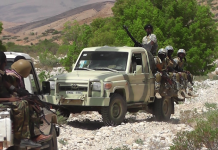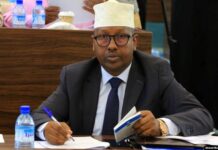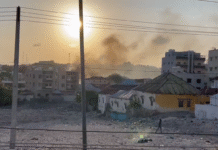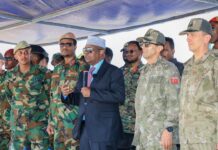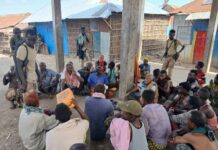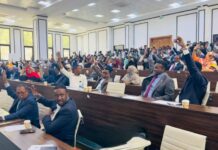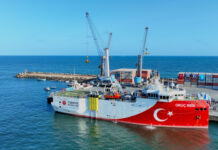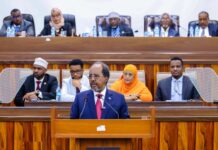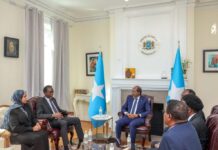United Nations Secretary General Antonio Guterres flew to Baidoa after arriving in an emergency meeting with Somali President Mohamed Abdullahi Farmajo in the capital Mogadishu.
The two discussed the perilous humanitarian situation in Somalia as well as pressing security issues that would affect the coordination efforts. Following a meeting with Somalia’s president, Guterres announced that the international community had to act urgently in order to avert the famine.
“People are dying, the world must act now to stop this. With the support of the international community, it is possible to avert the famine and save millions of lives. Somalia needs more international aid,” he said in a joint news briefing with the Somali president.
Guterres is expected to visit hospitals and internally displaced people camps on the frontline of the famine. On Sunday, the UN Office for Coordinating Human Affairs said that nearly 8000 cases of cholera were recorded since the beginning of 2017 that resulted in nearly 200 deaths. The same report said that the villages in the Bay region were the most hit by cholera.
Somalia is one of four regions, along with South Sudan, northeast Nigeria, and Yemen that the UN said would need $4.4 bn in aid. A famine has been declared in South Sudan and Somalia is on the brink of its third famine in 25 years.
The UN humanitarian appeal for Somalia in 2017 sits at $864m, but the UN World Food Programme (WFP) asked for an additional $26m in emergency funds to address the drought.
The situation is quickly deteriorating according to Joseph Contreras, the spokesperson for the UN Assistance Mission in Somalia (UNSOM), who said it is “significantly worse in the last six months.”
“Currently, approximately 6.2 million Somalis are in need of humanitarian assistance, of that number, three million are in need or urgent life saving measures. This is a significant step up from the 1.1 million Somalis that were in such circumstances, such need for life saving measures in September,” he said.
The President of Somalia declared the humanitarian crisis a national disaster at an emergency roundtable meeting with regional leaders and international partners. His newly confirmed Prime Minister, a former regional director with the NRC met with the Somali Drought Committee over the weekend to announce the first death toll since that meeting, saying 110 people had died in a 48 hour period in just the Bay region alone.
Source: Hiiraan Online


